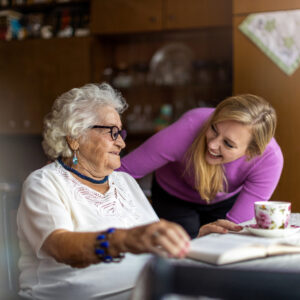POLICIES & DOCUMENTATION
Quick guide for customers / care recipients
Reinventing what it means to age requires a community built upon a strong foundation of safety, trust, integrity and transparency.

FOR CUSTOMERS / CARE RECIPIENTS
Introduction
This information outlines what a Self-Employed Carer will expect from a placement with you, facilitated by Elder. We want to ensure the relationship you are building with your Self-Employed Carer is positive and lasting. Even if your care is short-term, we hope that both you and your Self-Employed Carer will come away feeling the arrangement was beneficial and successful.
This document should help you understand Elder’s requirements for engaging, and maintaining engagement with Self-Employed Carers matched by the Elder platform. We have developed a separate set of minimum standards expected of Self-Employed Carers accepted onto the platform which can be found
1) The Care Request and Profile: The Care Request and Profile must be an up-to-date and accurate reflection of the Care Recipient’s needs. This includes medical conditions, medication, nutritional needs, personal care, mobility, continence, behaviour, night-time support, and any equipment the Self-Employed Carer might be expected to use to support the Care Recipient.
Should a Self-Employed Carer feel the Care Request is not an accurate reflection of the duties they are performing they have the right to ask you, the Customer/Care Recipient, to update the Care Request accordingly. An accurate and up-to-date Care Request and Profile helps to ensure Self-Employed Carers are working within their competencies and helps to keep everyone safe.
Failure or refusal to maintain an up to date Care Request may result in matching being suspended or loss of access to the platform.
2) The Working Environment: Self-Employed Carers must have their own private bedroom, a secure place to keep their belongings, fresh bedding and towels, and confirmation that essential appliances are working properly (e.g. the cooker). Self-Employed Carers will have access to information regarding where a placement is located and some detail about the local area (e.g. local shops and public transport).
Self-Employed Carers should be informed about who else lives in the home, in addition to the Care Recipient, prior to accepting a placement. The Self-Employed Carer should also be informed of any CCTV in and on the property. Self-Employed Carers must only provide support to the person for which the Care Request is completed.
3) Breaks & Time-Off: Breaks should be agreed with you prior to a placement starting. All parties should be clear on break arrangements, coverage requirements, and agree to any subsequent changes. Although Self-Employed Carers are not employed by Elder, we encourage arranging appropriate breaks following government guidelines (https://www.gov.uk/rest-breaks-work). Breaks are managed directly by your carer in the Hub.
4) Night-Time Support: Self-Employed Carers who are undertaking regular live-in care duties can prepare to assist with night-time disturbances up to 2x per night for around 15 minutes on average. Should a Care Recipient require additional night time support (waking night care) alternative arrangements must be explored by you.
A Self-Employed Carer will not expect to exceed these waking times unless he/she is a waking night carer.
5) No Specialist Care Provision: A Self-Employed Carer on the Elder platform will not be expected to undertake any duties which are nurse-led, require specialist training, or any for which you, the Care Recipient/Customer, or they feel they can not undertake safely.
Specialist care that falls outside of the services of the platform includes:
- STOMA care
- PEG care
- Wound Care
- Ventilation, Oxygen Support, BiPAP or CPAP Support
- Unstable Epilepsy
- Controlled Drug Administration
- Covert Medication Administration
- Glucose readings via finger pricks
- Injections
- Pessaries, Enemas, Suppositories
- Active addiction
- Acute mental health disorders
- Any actions which could be considered a Deprivation of Liberty (i.e. locking doors to prevent someone from leaving their home)
6) Dignity and respect: Self-Employed Carers should be treated with dignity and respect. Where a Self-Employed Carer is subjected to any form of intentional abuse or mistreatment they will be supported to leave a placement in a timely manner should they choose to leave.
When working as a live-in carer, Self-Employed Carers have the right to privacy (see “The Working Environment”).
For Elder’s full Anti-Discrimination & Respect policy, please visit this link.
You can find our Community Standards here.







